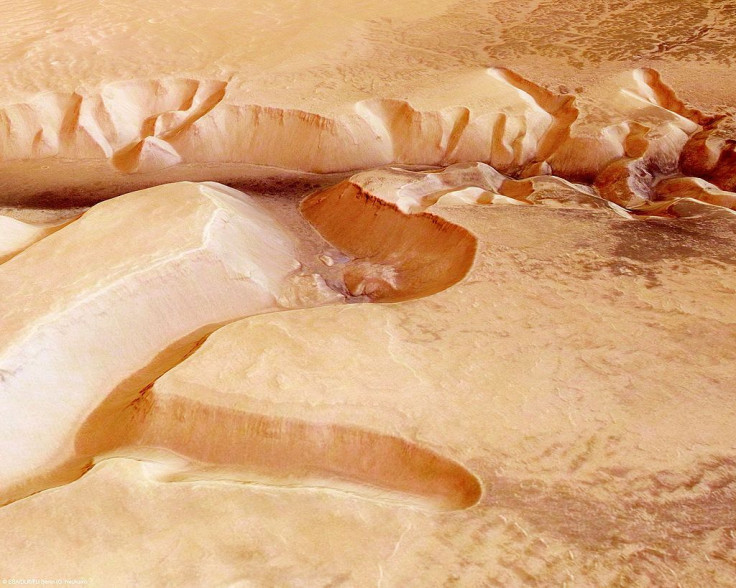Water On Mars Finally Discovered As Scientists ‘Stumble’ Upon Polar Ice Caps?

Planet Mars has been considered dead for a long time with nothing but sand and rocks surrounding it. For years, scientists have searched in vain trying to find water and other signs of life on the planet.
But just recently, some scientists shared that they might have discovered a new cache of water ice on Mars. And this is not just any ice as well but a combination of ice mixed with sand, leading proponents of the study to believe that this could be Mars’ polar ice caps.
"We didn't expect to find this much water ice here. That likely makes it the third largest water reservoir on Mars after the polar ice caps," Stefano Nerozzi, a doctoral student in geology at the University of Texas Institute for Geophysics and lead author of the study, said in a statement. The study was published by the American Geophysical Union.
According to a report, Nerozzi’s team made use of data gathered by U.S. space agency NASA’s Mars Reconnaissance Orbiter. The spacecraft has been traveling around Mars for more than a decade now and recently reached its 60,000th trip milestone. The Orbiter is equipped with a radar device that can actually observe 2.5 kilometers below the planet's surface. Based on the data gathered using this instrument, they saw a part of the Red Planet that has a lot of ice.
This data is being supported by another study thatvmade use of gravitational data about Mars and gathered by NASA using information from different missions. The discovered cache of ice is so big that scientists believe that should the ice melt, it can flood the whole planet with around 5 feet of water.
The data also suggest that there are different ice surfaces discovered, mostly a combination of ice and sand. This led the scientists to believe that they might have just stumbled upon the remaining traces of Mars’ polar ice caps which existed millions of years ago.
Proving this theory could help scientists determine what really happened to Mars’ atmosphere and what happened to all the water which used to be found on the Red Planet. Most importantly, it could pinpoint exactly where scientists should start searching for water on the Red Planet and with it, start the search for life on Mars.
"Understanding how much water was available globally versus what's trapped in the poles is important if you're going to have liquid water on Mars. You can have all the right conditions for life, but if most of the water is locked up at the poles, then it becomes difficult to have sufficient amounts of liquid water near the equator," Nerozzi said.
© Copyright IBTimes 2024. All rights reserved.





















